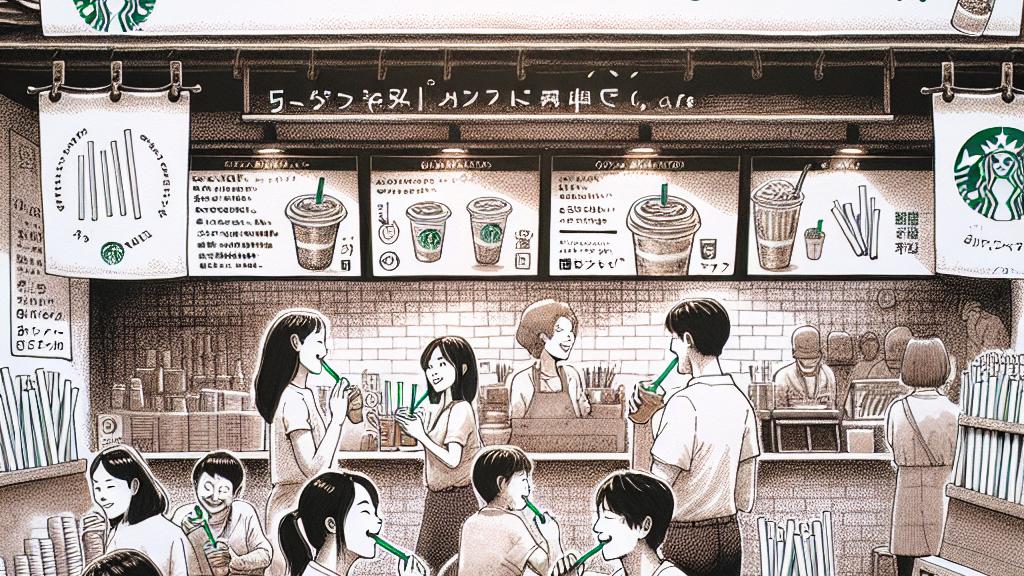Starbucks to Replace Paper Straws with Bio-Based Plastics
Overview
- Starbucks Japan is making a bold transition from paper straws to sustainable bio-based plastic straws starting January 2025.
- This exciting move aims to enhance your drink experience while significantly reducing environmental waste and carbon footprint.
- The initial launch will occur in Okinawa before expanding to over 1,900 stores across Japan, showing a strong commitment to sustainability.

A Transformative Shift for Starbucks
In a groundbreaking announcement, Starbucks Japan has declared that it will replace its paper straws with innovative bio-based plastics beginning in January 2025. This change comes on the heels of a shift to paper straws five years ago, which, while well-intentioned, received mixed reviews from patrons who often found paper straws inconvenient. They tend to lose their structural integrity in beverages, leaving customers frustrated. By adopting bio-based plastics, Starbucks is addressing these concerns head-on—providing a more reliable, enjoyable drinking experience while committing to environmental stewardship. This initiative is part of an expansive movement across the food and beverage industry, where companies increasingly adopt practices that align with the sustainability ethos demanded by today's conscious consumers.
Exploring the World of Bio-Based Plastics
So, what are bio-based plastics? Essentially, they are materials derived from renewable resources—think corn, sugarcane, or even leftover agricultural waste. Unlike conventional plastics made from fossil fuels, these eco-friendly alternatives contribute to a reduced carbon footprint. Starbucks is set to use biomass plastics, which enhance sustainability not only through their production but also via their potential for biodegradability. For instance, unlike traditional plastics that linger in landfills for centuries, bio-based plastics can break down more naturally, leaving less waste behind. This shift reflects a growing consumer demand for products that not only serve a functional purpose but also support the health of our planet. With Starbucks leading this charge, they set an inspiring example for others in the industry to follow.
Navigating Challenges While Seizing Opportunities
However, the journey to replace paper straws with bio-based plastics brings certain challenges. Critics highlight concerns about the environmental impact of producing and transporting these materials, which can still emit carbon. This places the onus on Starbucks to conduct thorough lifecycle assessments to ensure that their new straws genuinely support sustainability efforts. Meanwhile, innovation is buzzing in the beverage arena, with alternative straw options like pasta, rice, and even algae straws being explored. These choices each possess unique advantages: for example, pasta straws are fully edible, while rice straws decompose rapidly. As Starbucks ventures into this new era of straws, it's vital for them to gather consumer feedback and continually refine their approach, ensuring that they marry customer satisfaction with genuine environmental responsibility.

Loading...